
Aswan: The Jewel of the Nile
Nestled along the banks of the mighty Nile River, Aswan offers a unique blend of natural beauty and ancient history. This sun-soaked city is known for its serene atmosphere, stunning landscapes, and warm hospitality. Aswan is the gateway to some of Egypt's most enchanting temples and historical sites, making it a must-visit destination for any traveler eager to explore the wonders of the past. In Aswan, you can witness the mesmerizing sight of feluccas gliding across the Nile, visit the impressive Philae Temple, and explore the Nubian villages that dot the riverbanks. The city's vibrant markets, filled with colorful spices, handcrafted jewelry, and traditional textiles, provide a sensory feast for visitors. Aswan is also home to the Aswan High Dam, a modern marvel that showcases Egypt's engineering prowess. A visit to Aswan is not complete without a trip to the Unfinished Obelisk, a testament to ancient Egyptian stone-working techniques. For those seeking relaxation, the city's botanical gardens and tranquil Elephantine Island offer peaceful retreats. Whether you're an archaeology enthusiast, a nature lover, or simply looking for a place to unwind, Aswan promises an unforgettable experience.
Local tips in Aswan
- Visit early in the morning to avoid the midday heat and large crowds at popular sites.
- Take a felucca ride at sunset for breathtaking views of the Nile.
- Explore the Nubian villages to experience local culture and hospitality.
- Stay hydrated and wear comfortable clothing as temperatures can be high.
- Bargain at the markets for the best prices on souvenirs.
- Consider hiring a local guide to gain deeper insights into the historical sites.
Neighbourhoods in Aswan
Aswan: The Jewel of the Nile
Nestled along the banks of the mighty Nile River, Aswan offers a unique blend of natural beauty and ancient history. This sun-soaked city is known for its serene atmosphere, stunning landscapes, and warm hospitality. Aswan is the gateway to some of Egypt's most enchanting temples and historical sites, making it a must-visit destination for any traveler eager to explore the wonders of the past. In Aswan, you can witness the mesmerizing sight of feluccas gliding across the Nile, visit the impressive Philae Temple, and explore the Nubian villages that dot the riverbanks. The city's vibrant markets, filled with colorful spices, handcrafted jewelry, and traditional textiles, provide a sensory feast for visitors. Aswan is also home to the Aswan High Dam, a modern marvel that showcases Egypt's engineering prowess. A visit to Aswan is not complete without a trip to the Unfinished Obelisk, a testament to ancient Egyptian stone-working techniques. For those seeking relaxation, the city's botanical gardens and tranquil Elephantine Island offer peaceful retreats. Whether you're an archaeology enthusiast, a nature lover, or simply looking for a place to unwind, Aswan promises an unforgettable experience.
When is the best time to go to Aswan?
Iconic landmarks you can’t miss
Philae Temple
Discover the relocated Philae Temple on Agilkia Island, a mesmerizing blend of Egyptian, Greek, and Roman history and architecture dedicated to the goddess Isis.
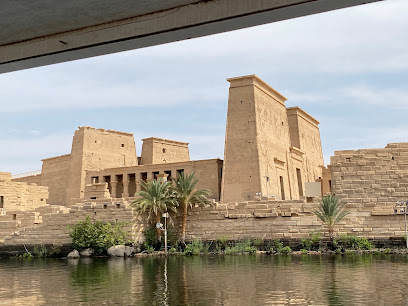
The High Dam
Witness the Aswan High Dam, an engineering feat that tamed the Nile, offering panoramic views and a glimpse into Egypt's modern ambitions.
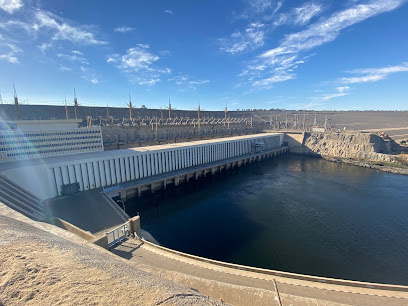
Aswan Old Souks
Experience the vibrant culture of Aswan at the Old Souks, a sensory feast of local crafts, spices, and traditional Egyptian goods.
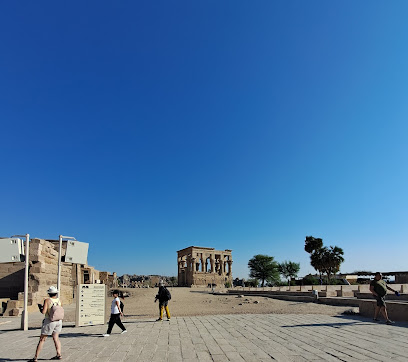
Unfinished Obelisk
Witness ancient Egyptian engineering firsthand at Aswan's Unfinished Obelisk, a colossal monument left incomplete in the granite quarries.
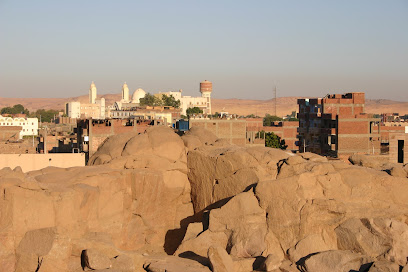
Nubian Museum
Discover Nubian history and culture at Aswan's Nubian Museum, showcasing artifacts from prehistoric times to the present.
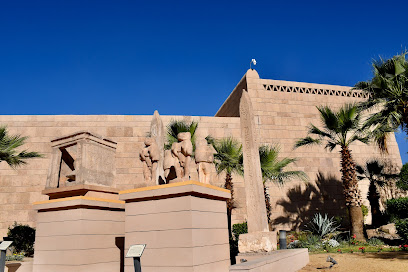
Aswan Botanical Garden
Discover the exotic beauty of Aswan Botanical Garden on Kitchener's Island, a stunning tropical paradise in the heart of Egypt.
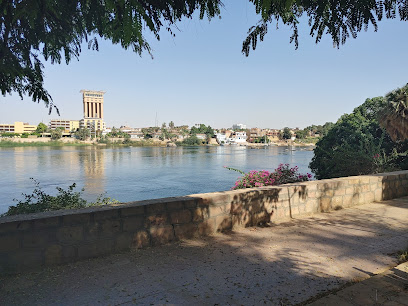
Sharia as Souq Market السياحي
Experience the authentic vibe of Aswan at Sharia as Souq Market, a treasure trove of Nubian crafts, spices, and Egyptian souvenirs.
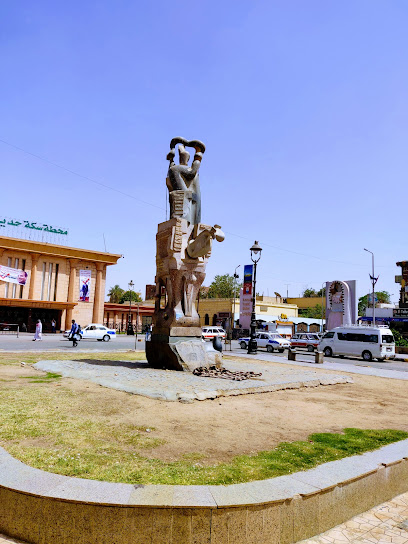
Tombs of the Nobles in Aswan
Explore the ancient Tombs of the Nobles in Aswan, revealing the lives and legacies of Egypt's elite through vibrant art and history.
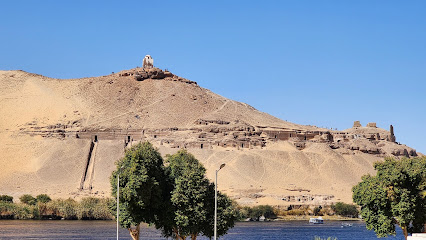
Aswan Museum
Explore Nubian history and culture at the Aswan Museum on Elephantine Island, featuring artifacts from ancient civilizations and the Aswan Dam rescue efforts.
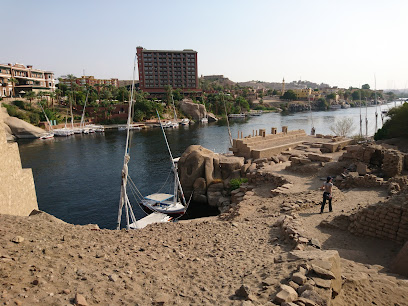
Aga Khan Mausoleum
Discover the Aga Khan Mausoleum in Aswan: A symbol of love, history, and Fatimid-inspired architecture on the Nile's west bank.
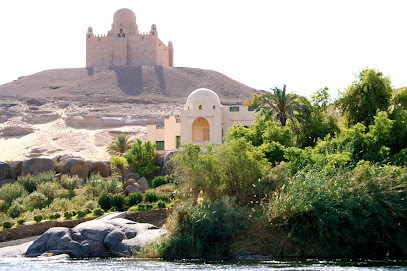
Monastery of St. Simeon
Explore the ruins of the Monastery of St. Simeon in Aswan, a fortress-like Coptic monastery with ancient frescoes and panoramic desert views.
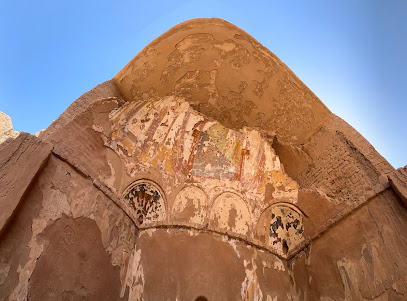
Nubian House
Discover Nubian culture in Aswan at Nubian House: authentic hospitality, traditional charm, and a memorable cultural experience.

Isis Temple
Explore the Temple of Isis in Aswan, a relocated marvel dedicated to the goddess of magic, accessible by boat on Agilkia Island.
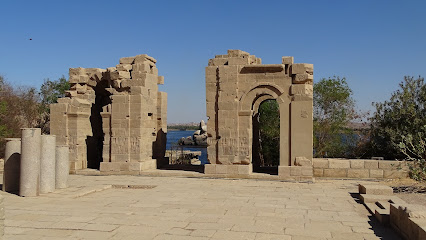
Sheraton Garden
Explore the serene beauty of Sheraton Garden, a lush national park in Aswan with stunning Nile views and abundant outdoor activities.
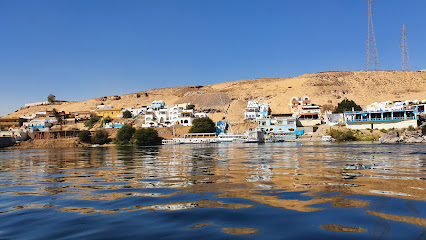
Ferry Dock for Mövenpick Resort
Gateway to the Mövenpick Resort Aswan, offering scenic ferry transfers to Elephantine Island and a blend of luxury and ancient history.
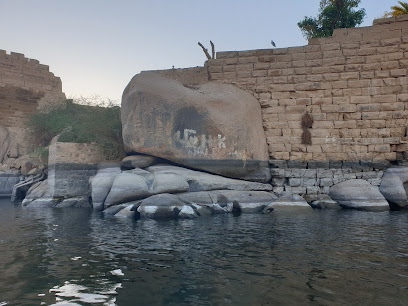
Unmissable attractions to see
Philae Temple
Experience the enchantment of Philae Temple, a historical landmark in Aswan, where ancient Egyptian culture and stunning landscapes converge.
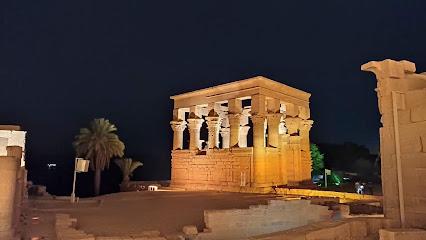
The High Dam
Explore the High Dam in Aswan, an engineering marvel offering breathtaking views and insights into Egypt's rich history and hydroelectric achievements.
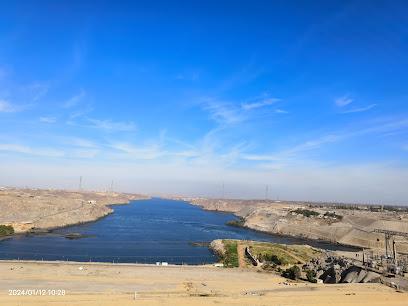
Nubian Museum
Explore the Nubian Museum in Aswan, an archaeological treasure showcasing the rich history and vibrant culture of Nubia.
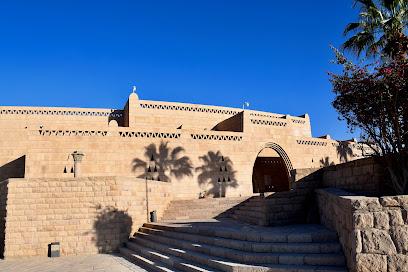
Kom Ombo Temple
Explore the stunning architecture and rich history of Kom Ombo Temple, a unique dual temple dedicated to the gods Sobek and Horus in Egypt's Aswan.
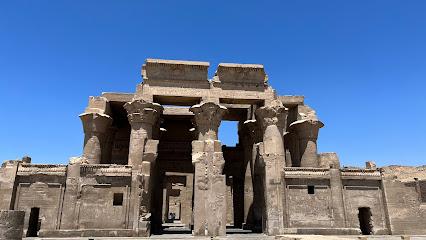
Aswan Botanical Garden
Explore the lush Aswan Botanical Garden, a tranquil paradise on Kitchener's Island with exotic plants and stunning views of the Nile River.
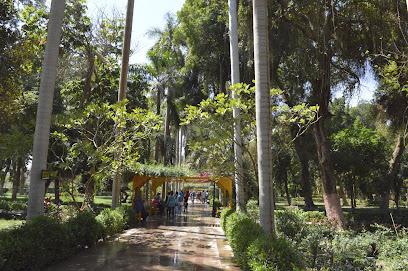
Philae
Explore the enchanting Philae Island in Aswan, home to stunning temples and rich Egyptian history amidst breathtaking natural beauty.
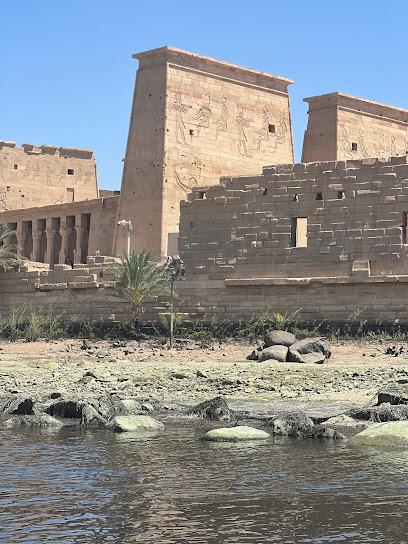
Feryal Garden حديقة فريال
Discover the tranquil beauty of Feryal Garden, an enchanting oasis in Aswan with stunning views of the Nile, perfect for relaxation and leisure.
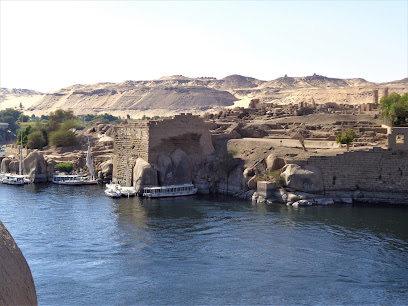
Coptic Orthodox Cathedral of the Archangel Michael
Discover the Coptic Orthodox Cathedral of the Archangel Michael, a stunning spiritual sanctuary in Aswan, reflecting rich history and beautiful architecture.
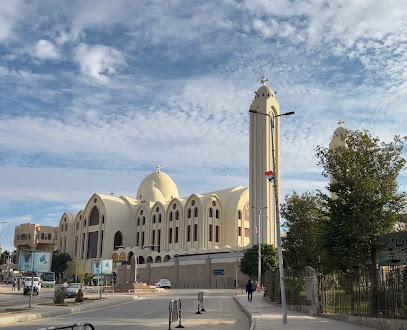
Kalabsha Temple
Discover the captivating Kalabsha Temple, a historical landmark in Aswan, Egypt, filled with ancient artistry and breathtaking landscapes.
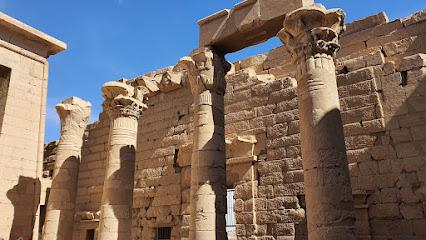
Crocodile Museum
Discover the ancient allure of crocodiles at the Crocodile Museum in Aswan, where Egypt's rich heritage comes alive through captivating exhibits.
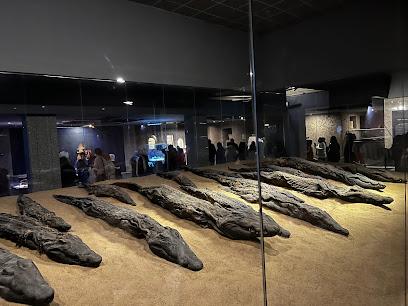
Animalia
Explore Animalia on Elephantine Island in Aswan – a unique museum blending nature, culture, and Nubian heritage in a stunning riverside setting.
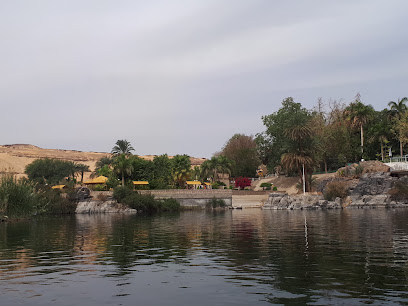
Dome of Abu Al-Hawa
Explore the breathtaking Dome of Abu Al-Hawa in Aswan, a stunning symbol of Egypt's architectural beauty and rich historical heritage.
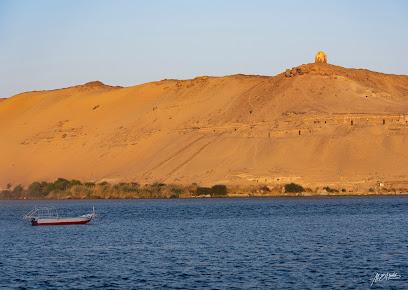
Seheil Island
Discover the enchanting Seheil Island, where tranquility meets history, offering stunning views and a serene escape in the heart of the Nile.
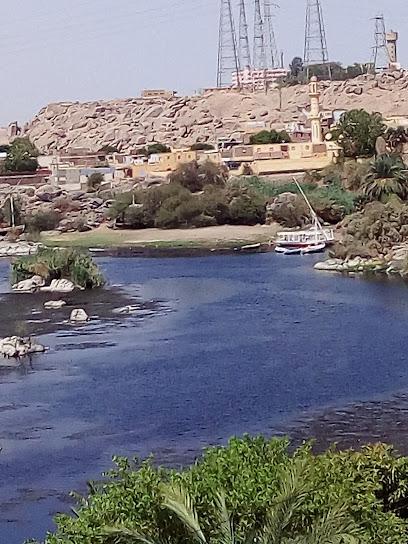
Salouga and Ghazal Nature Reseve
Explore the Salouga and Ghazal Nature Reserve, a breathtaking national park in Aswan, Egypt, perfect for wildlife enthusiasts and nature lovers alike.
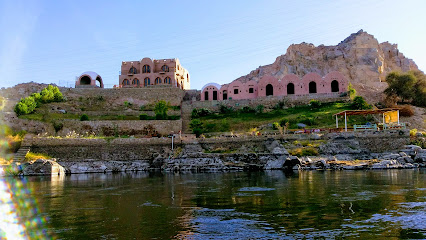
Agilkia Island
Explore the serene Agilkia Island, home to the ancient Philae Temple, lush landscapes, and breathtaking views along the Nile River.
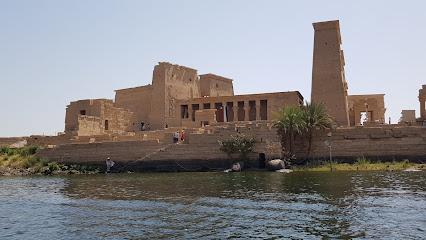
Essential places to dine
Makka Restaurant
Discover the vibrant tastes of Middle Eastern cuisine at Makka Restaurant in Aswan – where every bite tells a story.
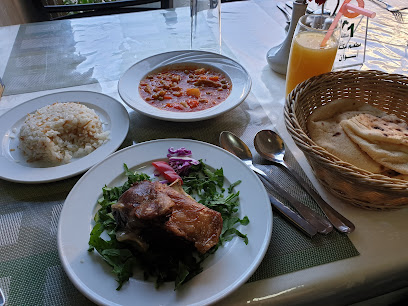
Al Masry
Discover Al Masry: A delightful fast-food haven in Aswan offering authentic Egyptian meat dishes at moderate prices.
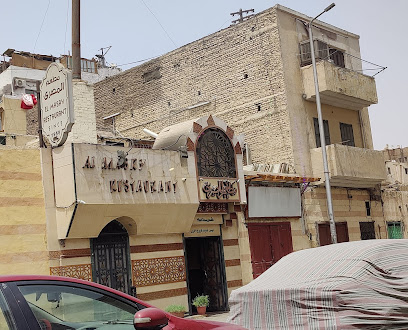
Makani Restaurant
Discover the authentic taste of Japanese izakaya at Makani Restaurant in Aswan – where delicious food meets vibrant ambiance.
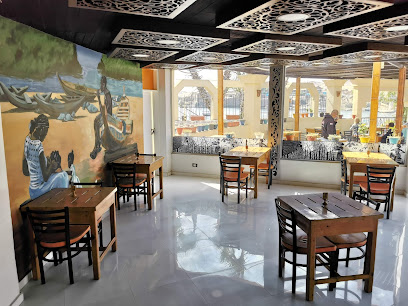
Porto Sonu
Discover the flavors of the West at Porto Sonu, where international cuisine meets Egyptian hospitality in the heart of Aswan.
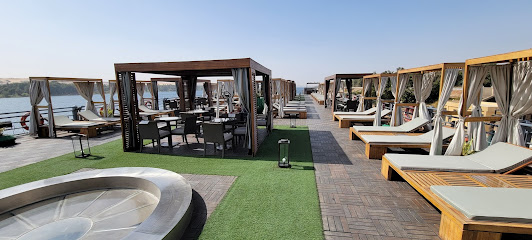
Bob Marley Moonlight terrace restaurant cafe
Experience flavorful barbecue dishes at Bob Marley Moonlight Terrace in Aswan - where great food meets vibrant ambiance.
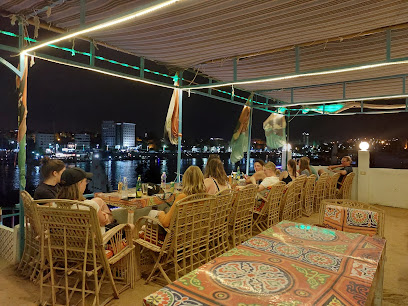
Esmo Eh
Discover Esmo Eh in Aswan – where fast food meets local flavor for an unforgettable culinary experience.
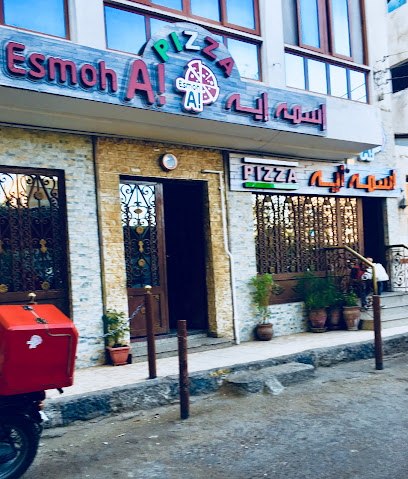
Abeer Resturant
Discover Abeer Restaurant in Aswan – where traditional barbecue meets local hospitality in a vibrant dining experience.
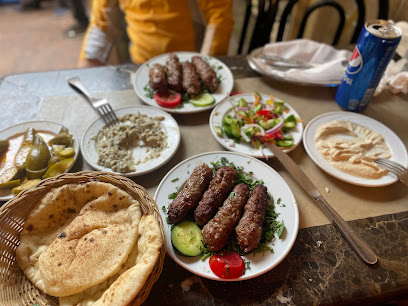
King Jamaica restaurant & Cafe and breakfast ( Ayman jamaica ) ايمن جاميكا
Experience authentic Jamaican flavors at King Jamaica Restaurant & Cafe on Elephantine Island in Aswan—where every meal is a celebration.
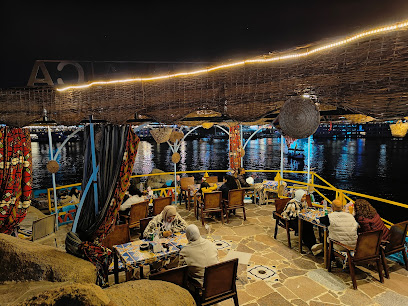
El Dokka Resturant
Experience authentic Egyptian barbecue on Eissa Island at El Dokka Restaurant with stunning Nile views and delicious grilled specialties.
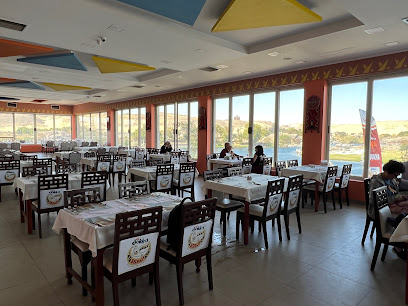
جمبريكا - Gambareca
Discover Gambareca in Aswan: A Seafood Restaurant Serving Fresh Flavors from the Nile with Authentic Egyptian Cuisine.
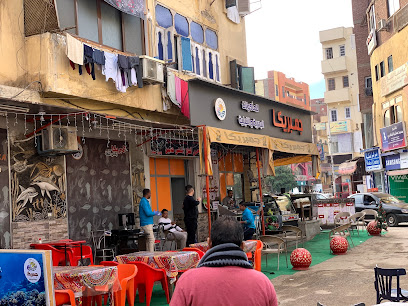
Sardina Seafood
Experience authentic Egyptian seafood delicacies at Sardina Seafood in Aswan, where every dish tells a story of tradition and flavor.
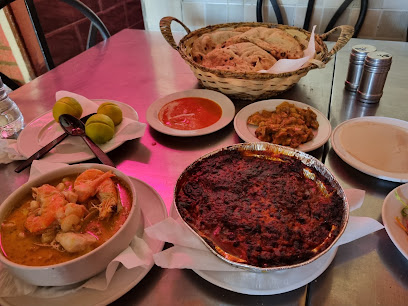
أبو عثمان ملك الكبدة
Discover authentic Egyptian fast food at Abu Othman Malek Al-Kabda in Aswan – where flavorful kebabs meet vibrant atmosphere.
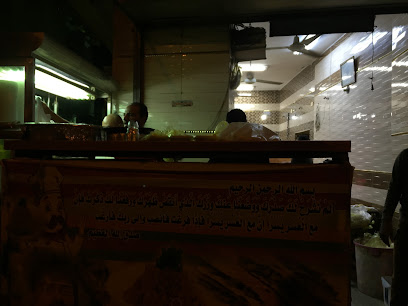
Chef Khalil Restaurant
Discover authentic Egyptian seafood at Chef Khalil Restaurant in Aswan - where tradition meets taste.
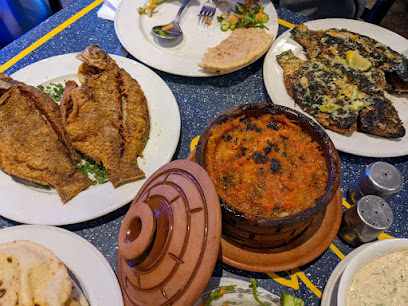
Grand Restaurant & Cafe
Discover authentic Japanese izakaya dining at Grand Restaurant & Cafe in Aswan – where tradition meets taste!
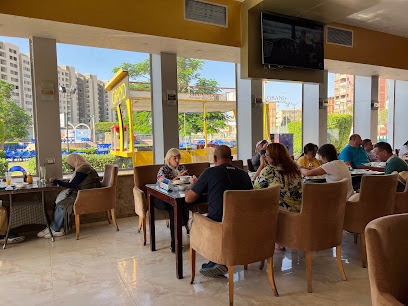
Koshary El-safwa
Discover the heart of Egyptian cuisine at Koshary El-safwa in Aswan—home to flavorful koshary and welcoming ambiance.
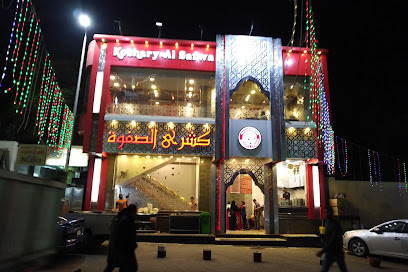
Markets, malls and hidden boutiques
Aswan Old Souks
Discover the rich culture of Egypt at Aswan Old Souks, a vibrant market filled with unique handicrafts, spices, and delicious street food.
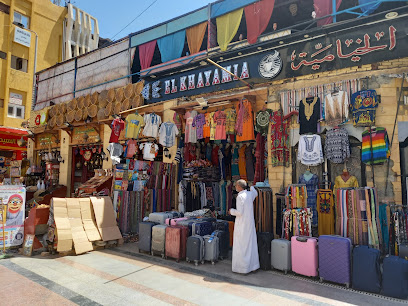
Nubian Museum
Explore the Nubian Museum in Aswan for a deep dive into Nubian history, art, and culture, showcasing the treasures of an ancient civilization.
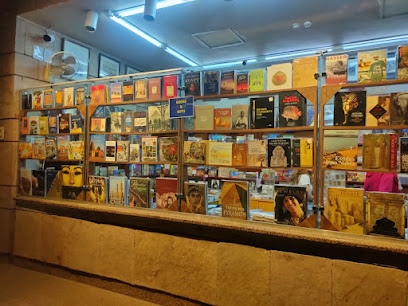
Sharia as Souq Market السياحي
Immerse yourself in the vibrant atmosphere of Sharia as Souq Market, a must-visit destination in Aswan for authentic crafts, spices, and local culture.
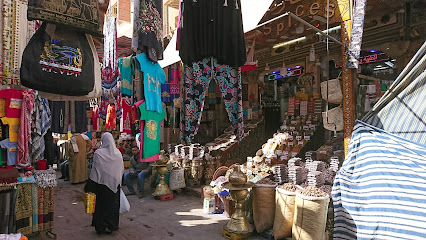
ASWAN plaza hotel and mall
Explore the vibrant ASWAN Plaza Hotel and Mall for an unforgettable shopping and dining experience in the heart of Aswan, Egypt.
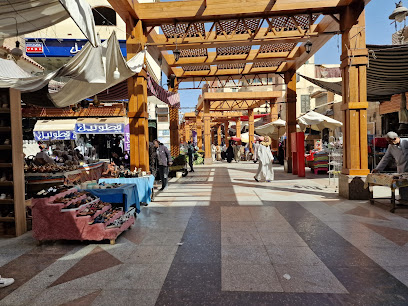
Darwish Cotton Store in Aswan
Discover the essence of Egyptian craftsmanship at Darwish Cotton Store, where authentic textiles and souvenirs await in the heart of Aswan.
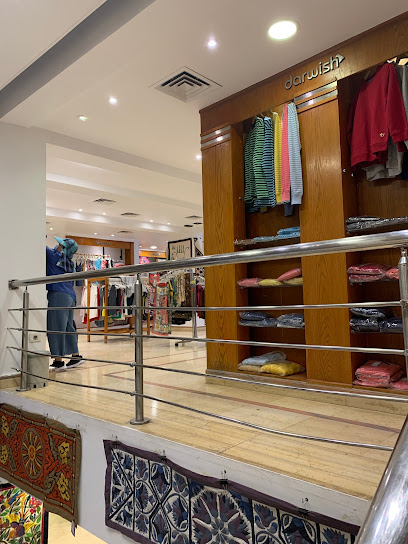
Egypt Duty Free Shops
Discover unparalleled shopping at Egypt Duty Free Shops in Aswan, where luxury meets local culture along the Nile.
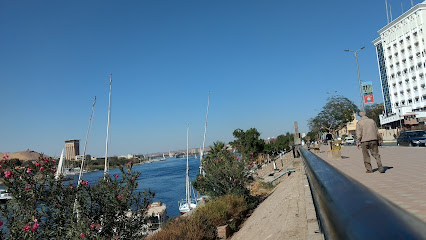
فسخاني السد العالي
Explore فسخاني السد العالي - Your gateway to the vibrant fish processing culture and authentic seafood of Aswan.
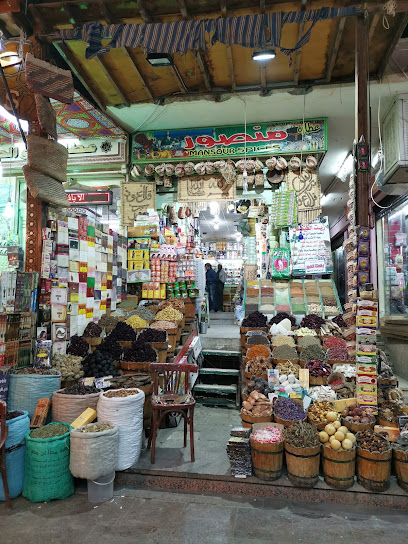
قصر ابو سمبل للعطور
Discover the essence of Egypt at Abu Simbel Perfume Store in Aswan, where tradition meets exquisite fragrance artistry.
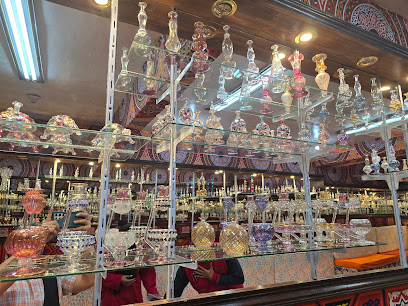
Nicotine Aswan Vape store
Nicotine Aswan Vape Store: Your ultimate destination for high-quality vaping products and a flavorful experience in Aswan.
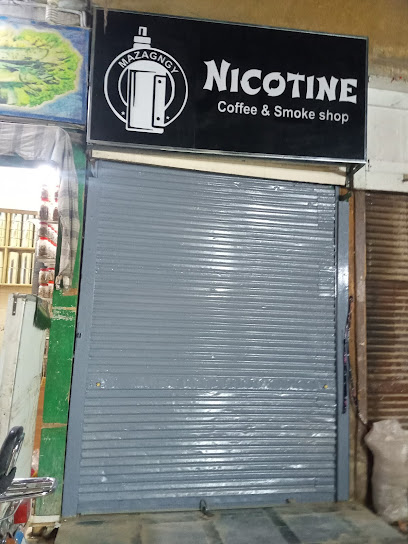
Aswan Moon
Discover the delightful Aswan Moon, a cozy coffee shop in the heart of Aswan, perfect for unwinding and indulging in rich coffee blends.
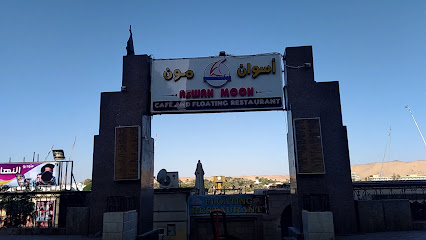
Zain Grocery Shop - محل وبقالة الزّين
Discover local flavors and essentials at Zain Grocery Shop on Elephantine Island, your go-to convenience store in Aswan.
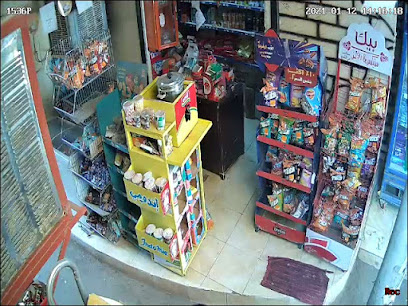
Old Shop Aswan
Explore the vibrant Old Shop Aswan, where local culture meets modern shopping for an unforgettable experience.
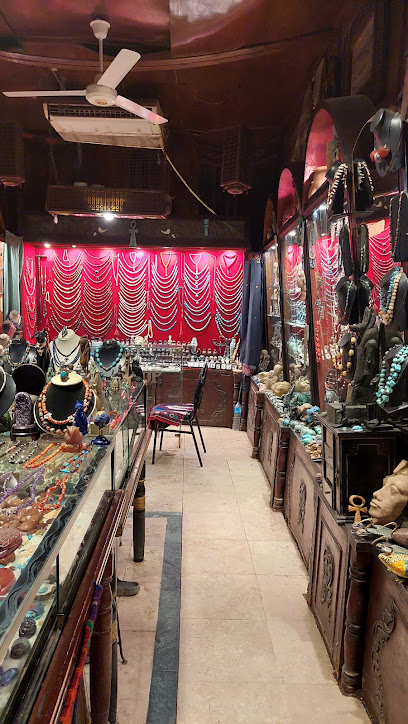
الاصلي للتوريدات الكهربائية
Experience the authentic flavors and vibrant culture of Aswan at the original grocery supply store, a local gem for every traveler.
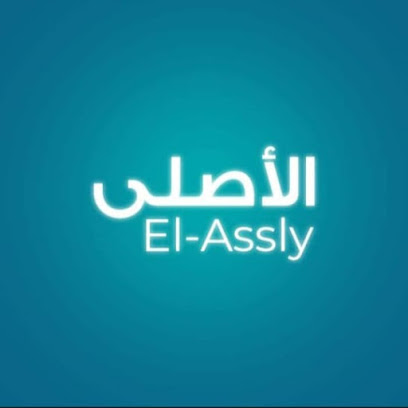
Nubian Eco Village
Experience the tranquility and cultural richness of Nubian Eco Village in Aswan, where history meets sustainable living amid stunning natural beauty.
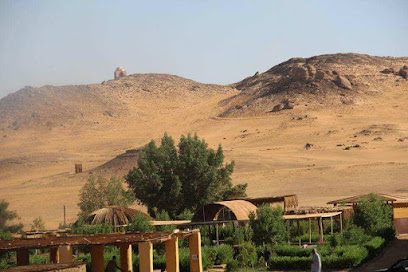
MarshMallow ASWAN Store
Explore the vibrant women's clothing collection at MarshMallow ASWAN Store, a perfect blend of local culture and contemporary fashion in Aswan.
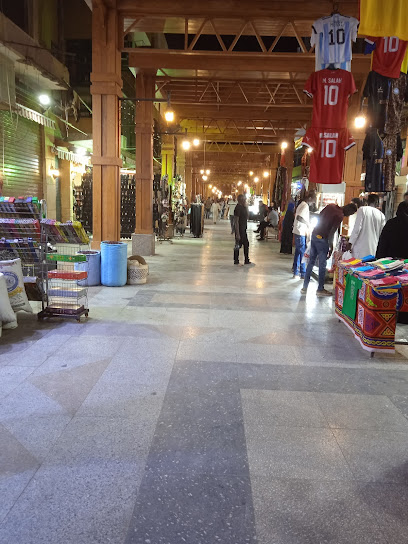
Essential bars & hidden hideouts
Bob Marley Moonlight terrace restaurant cafe
Discover the vibrant flavors and lively atmosphere of Bob Marley Moonlight Terrace, a premier barbecue destination in Aswan, Egypt.
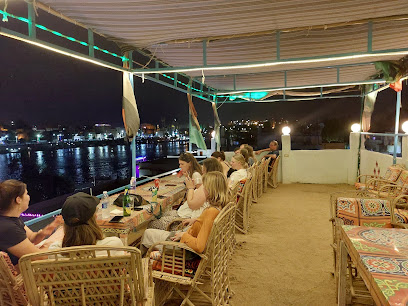
Nubian Dreams Restaurant & Cafe
Experience authentic Nubian cuisine at Nubian Dreams Restaurant & Cafe, where tradition meets flavor in the heart of Aswan.
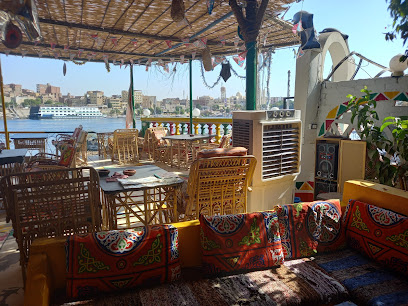
Ibiza Free Beach & Restaurants & Cafe
Experience the perfect blend of beach vibes and delicious cuisine at Ibiza Free Beach & Restaurants & Cafe in Aswan, a culinary gem by the sea.
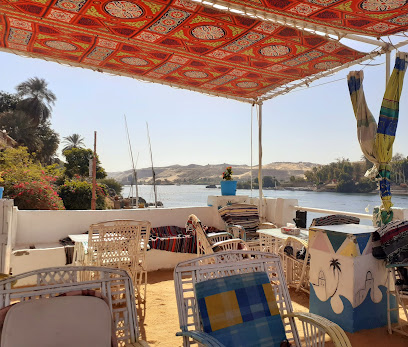
Panorama Restaurant & Bar
Experience exquisite dining at Panorama Restaurant & Bar with stunning Nile views and a fusion of local and international cuisine.
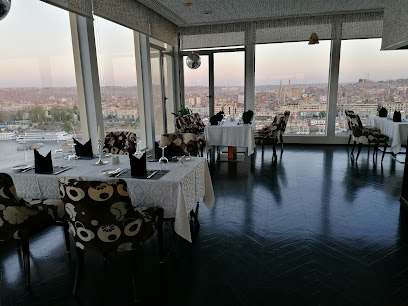
مطعم وكافيتيريا ايمى درينكز
Discover the perfect riverside escape at Emmi Drinks, where refreshing beverages and stunning Nile views await in Aswan.
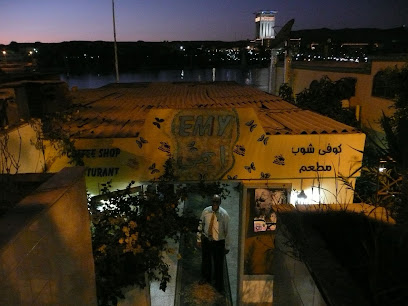
Emy Bar
Discover the lively atmosphere of Emy Bar in Aswan, where travelers enjoy refreshing drinks and local flavors in a vibrant setting.
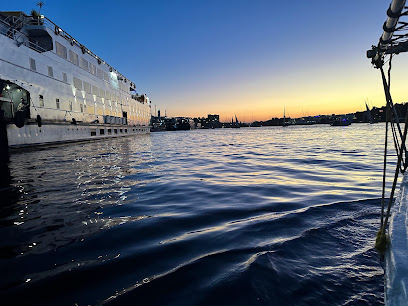
Elmabroka Restaurant And Cafe
Experience exquisite seafood dining at Elmabroka Restaurant and Cafe, where the Nile's beauty meets culinary excellence in Aswan, Egypt.
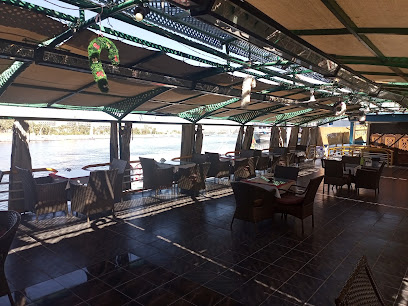
The Lounge Bar
Experience the beauty of Aswan at The Lounge Bar, where exquisite cocktails and stunning Nile views create unforgettable moments.
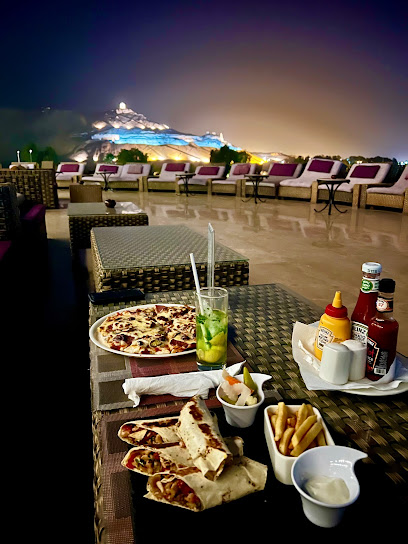
درينكيز
Discover the lively charm of درينكيز, a vibrant bar in Aswan perfect for relaxing and enjoying local culture amidst your Egyptian adventure.

Princess Amira Aswan Hotel
Discover the elegance of Princess Amira Aswan Hotel, where modern comfort meets the rich heritage of Egypt, just steps from the Nile.

Al Qahwa
Experience the essence of Egypt at Al Qahwa, a bar and restaurant on Elephantine Island offering stunning Nile views and delectable local cuisine.
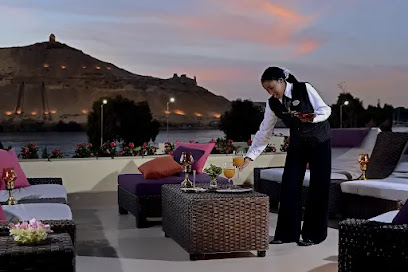
Pool Bar
Experience serene relaxation at the Pool Bar on Elephantine Island, where refreshing drinks meet a stunning outdoor pool in the heart of Aswan.

Panda bar
Discover the essence of local culture at Panda Bar in Aswan, where traditional drinks and a cozy atmosphere await.
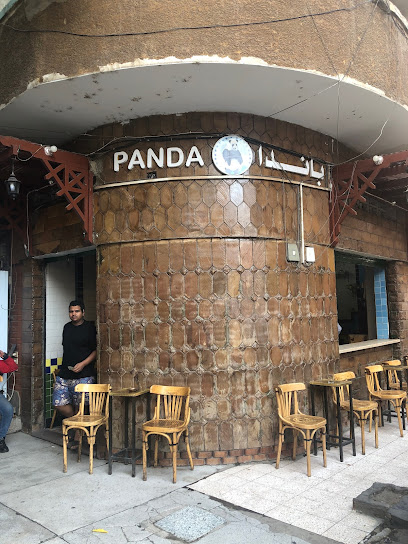
Being sport
Explore local flavors and unwind in the vibrant atmosphere of Being Sport, a bar that captures the essence of Aswan's nightlife.
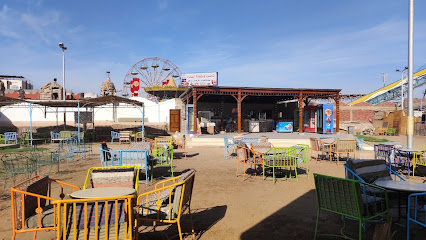
Local Phrases
-
- Helloأهلاً
[ahlan] - Goodbyeوداعاً
[wada'an] - Yesنعم
[na'am] - Noلا
[la] - Please/You're welcomeمن فضلك/على الرحب والسعة
[min fadlik/ala al-rahb was-sa'ah] - Thank youشكراً
[shukran] - Excuse me/Sorryعذراً
[a'edan] - How are you?كيف حالك؟
[kayfa halak?] - Fine. And you?بخير. وأنت؟
[bi-khayr. wa-ant?] - Do you speak English?هل تتحدث الإنجليزية؟
[hal tatahadath al-ingliziyya?] - I don't understandأنا لا أفهم
[ana la afham]
- Helloأهلاً
-
- I'd like to see the menu, pleaseأود أن أرى القائمة، من فضلك
[awad an ara al-qa'ima, min fadlik] - I don't eat meatأنا لا آكل اللحم
[ana la akl al-lahm] - Cheers!في صحتك!
[fi sahtak!] - I would like to pay, pleaseأريد أن أدفع، من فضلك
[urid an adfa', min fadlik]
- I'd like to see the menu, pleaseأود أن أرى القائمة، من فضلك
-
- Help!النجدة!
[al-najdah!] - Go away!انصرف!
[ansurf!] - Call the Police!اتصل بالشرطة!
[itassil bialshurta!] - Call a doctor!اتصل بالطبيب!
[itassil bialtabib!] - I'm lostلقد ضللت الطريق
[laqad dalalt al-tariq] - I'm illأنا مريض
[ana mareed]
- Help!النجدة!
-
- I'd like to buy...أود أن أشتري...
[awad an ashtari...] - I'm just lookingأنا فقط أتفرج
[ana faqat atfarrag] - How much is it?كم سعره؟
[kam sa'ruh?] - That's too expensiveهذا غالي جداً
[hatha ghali jiddan] - Can you lower the price?هل يمكنك خفض السعر؟
[hal yumkinuk khafdh al-sa'ruh?]
- I'd like to buy...أود أن أشتري...
-
- What time is it?كم الوقت؟
[kam al-waqt?] - It's one o'clockالساعة الواحدة
[al-sa'at al-wahida] - Half past (10)العاشرة والنصف
[al-ashirah wal-nisf] - Morningالصباح
[al-subah] - Afternoonبعد الظهر
[ba'd al-dhuhr] - Eveningالمساء
[al-masa'] - Yesterdayأمس
[ams] - Todayاليوم
[al-yawm] - Tomorrowغداً
[ghadan] - 1واحد
[wahid] - 2اثنان
[ithnan] - 3ثلاثة
[thalatha] - 4أربعة
[arba'a] - 5خمسة
[khamsa] - 6ستة
[sitta] - 7سبعة
[sab'a] - 8ثمانية
[thamania] - 9تسعة
[tasia] - 10عشرة
[ashara]
- What time is it?كم الوقت؟
-
- Where's a/the...?أين الـ...؟
[ayn al-...?] - What's the address?ما هو العنوان؟
[ma hu al-unwan?] - Can you show me (on the map)?هل يمكنك أن تريني (على الخريطة)؟
[hal yumkinuk an tarini (ala al-kharitah)?] - When's the next (bus)?متى يأتي الحافلة التالية؟
[mata ya'ti al-hafilah al-taliyah?] - A ticket (to ....)بطاقة (إلى...)
[bitaqah (ila...)]
- Where's a/the...?أين الـ...؟
History of Aswan
-
Aswan, located on the first cataract of the Nile, has been a significant trade hub since ancient times. Its strategic position made it a gateway between Egypt and Africa, facilitating the exchange of goods such as gold, ivory, and exotic animals.
-
Aswan is home to several iconic Pharaonic monuments, including the Temple of Philae, dedicated to the goddess Isis. The temple complex, which dates back to the Ptolemaic period, was meticulously relocated to Agilkia Island to save it from submersion during the construction of the Aswan High Dam.
-
The Unfinished Obelisk, located in the Northern Quarries, offers a glimpse into ancient Egyptian stone-working techniques. If completed, it would have been the largest obelisk ever erected, standing at an estimated 42 meters in height and weighing nearly 1,200 tons.
-
The Nubian population of Aswan has a rich cultural heritage. The Nubians have their own distinct language, customs, and traditions, which have been preserved despite the displacement caused by the construction of the Aswan High Dam. Visitors can explore Nubian villages to experience their unique way of life.
-
Completed in 1970, the Aswan High Dam is a marvel of modern engineering. The dam has had a profound impact on Egypt's economy by providing hydroelectric power and regulating the annual flooding of the Nile, though it also led to the displacement of many Nubian communities and submersion of ancient sites.
-
Elephantine Island, situated in the Nile, has been inhabited since pre-dynastic times. The island contains archaeological sites such as the Temple of Khnum, the god of the source of the Nile, and the ancient Nilometer, which was used to measure the water level of the river.
-
Overlooking the Nile, the Aga Khan Mausoleum is the final resting place of Aga Khan III, the spiritual leader of the Ismaili Muslims. The mausoleum, built in a style reminiscent of the Fatimid tombs in Cairo, is a symbol of the historical connection between Aswan and the wider Islamic world.
-
Also known as Kitchener's Island, the Botanical Island hosts a stunning collection of exotic plants and trees. Originally developed by Lord Kitchener in the 1890s, the island now serves as a peaceful retreat with lush gardens and walking paths.
-
Opened in 1997, the Nubia Museum in Aswan showcases the history, art, and culture of Nubia. The museum's extensive collection includes artifacts from the prehistoric era to the Islamic period, providing valuable insights into the rich heritage of the Nubian people.
Aswan Essentials
-
Aswan is accessible by various means of transportation. The Aswan International Airport serves domestic flights and limited international flights. From Cairo, you can take a 1.5-hour flight to Aswan. Alternatively, there is a scenic overnight sleeper train from Cairo that takes approximately 13 hours. Buses and private cars are also options for those traveling from nearby cities like Luxor, which is a 3-hour drive away.
-
In Aswan, transportation options include taxis, minibuses, and boats. Taxis are plentiful and can be hailed on the street or booked through your hotel. Negotiate the fare beforehand to avoid misunderstandings. Minibuses, known as 'microbuses,' are a cheaper option but can be crowded. For a unique experience, consider taking a felucca, a traditional wooden sailing boat, to explore the Nile. Car rentals are also available but driving in Aswan can be challenging due to traffic and local driving habits.
-
The official currency in Egypt is the Egyptian Pound (EGP). Credit and debit cards are accepted in most hotels, restaurants, and larger shops, but cash is preferred in local markets and smaller establishments. ATMs are widely available throughout Aswan, including at the airport, major hotels, and shopping areas. It is advisable to carry small denominations of cash for tipping and small purchases.
-
Aswan is generally safe for tourists, but it's important to take standard precautions. Avoid isolated areas at night and be cautious in crowded places to prevent pickpocketing. Areas with a higher risk of crimes targeting tourists include the Aswan Dam and the Unfinished Obelisk. Always keep an eye on your belongings and avoid displaying valuables like expensive jewelry and electronics.
-
In case of emergency, dial 122 for police, 123 for medical emergencies, and 180 for fire services. Most hotels have information on local medical facilities, and there are several hospitals and clinics in Aswan. Having travel insurance that covers medical emergencies is highly recommended. For minor health issues, pharmacies are available throughout the city, and many pharmacists speak English.
-
Fashion: Do dress modestly, especially when visiting religious sites. Avoid wearing revealing clothing. Religion: Do respect local customs and traditions. Remove your shoes when entering mosques and dress conservatively. Public Transport: Do be respectful and patient. Don't eat or drink on public transport. Greetings: Do greet people with a handshake. Use your right hand for eating and greeting, as the left hand is considered impolite. Eating & Drinking: Do try local delicacies and accept food offerings graciously. Don't refuse hospitality, as it can be seen as impolite.
-
To experience Aswan like a local, visit the local markets, especially the Aswan Souk, where you can buy spices, perfumes, and traditional Nubian crafts. Engage with the local Nubian community to learn about their culture and traditions. Don't miss a visit to the Nubian Museum, which offers a deep dive into the history and culture of the Nubian people. For a unique experience, take a sunset felucca ride on the Nile and enjoy the stunning views of the river and surrounding landscape.
Trending Landmark in Aswan
Nearby Cities to Aswan
-
Things To Do in Luxor
-
Things To Do in Marsa Alam
-
Things To Do in Sohag
-
Things To Do in Hurghada
-
Things To Do in El Gouna
-
Things To Do in Asyut
-
Things To Do in Sharm El Sheikh
-
Things To Do in Minya
-
Things To Do in Dahab
-
Things To Do in Yanbu
-
Things To Do in Al Ula
-
Things To Do in Beni Suef
-
Things To Do in Tabuk
-
Things To Do in Aqaba
-
Things To Do in Eilat
















